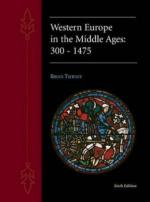|
This section contains 10,270 words (approx. 35 pages at 300 words per page) |

|
St. Augustine
Most of what St. Augustine (354–430) had to say about language and meaning was said not for its own sake but in support or elucidation of some theological doctrine. Partly for that reason, perhaps, his semantic doctrines had less effect on philosophy of language in the Middle Ages than might be expected, considering his enormous influence on medieval philosophy in general.
The short treatise Principia Dialecticae (probably written around 384, when Augustine was a professor of rhetoric) contains what may be the only instance of a semantic inquiry pursued by Augustine without a motive. In it he distinguishes four principal semantic elements: (1) the word (verbum), a spoken articulate sound, classifiable as a vocable of some language; (2) the expressible (dicibile), "whatever is sensed in the word by the mind rather than by the ear and is retained by the mind"; (3) the ordinary use of the...
|
This section contains 10,270 words (approx. 35 pages at 300 words per page) |

|


